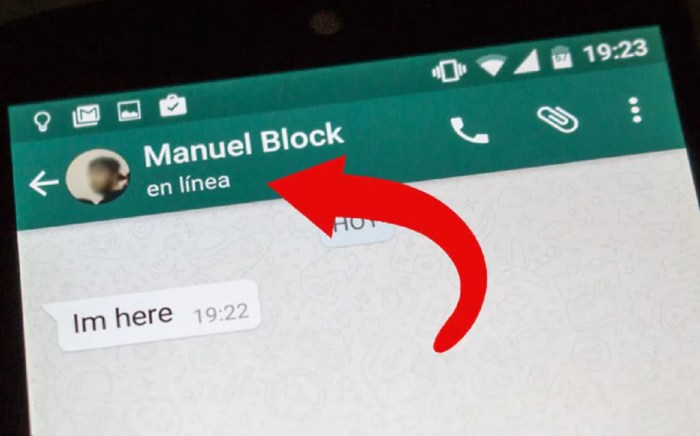WhatsApp’s new link privacy feature is rolling out for some, offering users greater control over who can see the links they share. This feature enhances privacy by preventing unwanted individuals from accessing sensitive information or malicious content.
The link privacy feature allows users to choose who can follow links shared in their chats. Users can select from three options: “Everyone,” “My Contacts,” or “Nobody.” By default, the setting is set to “Everyone,” but users can customize it to suit their privacy preferences.
WhatsApp’s New Link Privacy Feature

WhatsApp’s new link privacy feature offers enhanced control over the visibility of shared links, empowering users to protect their privacy. By implementing this feature, WhatsApp aims to address concerns related to unsolicited link sharing and potential privacy breaches.
This feature allows users to choose who can view the link previews and accompanying text when a link is shared in a chat or group. Users can select from three options: “Everyone,” “My Contacts,” or “Nobody.” By default, the “My Contacts” option is enabled, providing a balance between privacy and convenience.
Benefits of WhatsApp’s New Link Privacy Feature
- Enhanced privacy control: Users can now limit the visibility of link previews and accompanying text, preventing unintended sharing with unknown or untrusted individuals.
- Protection from malicious links: By restricting link previews for certain contacts, users can reduce the risk of falling victim to phishing scams or malware attacks.
- Improved user experience: The ability to customize link visibility enhances the overall user experience, allowing individuals to share links more confidently and securely.
Limitations of WhatsApp’s New Link Privacy Feature
- Potential for inconvenience: In certain situations, users may need to manually adjust the link privacy settings for specific contacts or groups, which could be time-consuming.
- Lack of granularity: The feature currently offers only three visibility options, which may not cater to all users’ specific privacy preferences.
- Limited control over link forwarding: While users can control who can view link previews, they cannot prevent others from forwarding the links to unauthorized individuals.
Examples of WhatsApp’s New Link Privacy Feature in Practice
Consider the following scenarios where WhatsApp’s new link privacy feature can enhance user privacy:
- Sharing sensitive information: When sharing a link to a private document or financial statement, users can select “Nobody” to ensure that only the intended recipient has access to the link preview.
- Protecting against phishing scams: If a user receives a suspicious link from an unknown sender, they can choose “Nobody” to prevent the link preview from loading, reducing the risk of clicking on a malicious link.
- Managing group discussions: In large group chats, users can set the link privacy to “My Contacts” to limit link visibility to trusted members, preventing the spread of unwanted or inappropriate content.
Technical Implementation
WhatsApp’s new link privacy feature employs end-to-end encryption (E2EE) to safeguard the privacy of users. E2EE ensures that messages, including links, are encrypted from the sender’s device to the recipient’s device, preventing unauthorized parties from accessing or intercepting the content.
Encryption Process
- When a user shares a link, WhatsApp generates a unique encryption key for that specific link.
- The encryption key is then sent to the recipient’s device via a secure channel.
- The recipient’s device uses the encryption key to decrypt the link and access the intended content.
Privacy Protection
By encrypting links, WhatsApp ensures that the following information remains private:
- The destination URL of the link
- Any tracking parameters or metadata associated with the link
- The sender and recipient’s identities
Challenges and Limitations
While WhatsApp’s link privacy feature provides robust protection, there are some potential challenges and limitations to consider:
- Compatibility:The feature may not be compatible with all devices or operating systems.
- Encryption Overhead:Encrypting and decrypting links can add a slight performance overhead, especially for large links.
- Potential Circumvention:Malicious actors may find ways to circumvent the encryption, although WhatsApp continuously updates its security measures to mitigate such risks.
User Experience
Accessing WhatsApp’s link privacy feature is straightforward. Users can find the option within the app’s privacy settings. Once enabled, the feature prevents anyone from seeing the link preview when a link is shared in a chat.
The user interface for the link privacy feature is intuitive and easy to use. The option is clearly labeled and can be toggled on or off with a single tap. Users can also choose to make the feature apply to all chats or only specific ones.
Potential Pain Points
One potential pain point is that the link privacy feature may not be immediately obvious to all users. It is located within the app’s privacy settings, which some users may not be familiar with. Additionally, the feature is not enabled by default, so users need to manually activate it to take advantage of its benefits.
Another potential pain point is that the link privacy feature may not be compatible with all types of links. For example, it may not work with links that are shared from external websites or apps.
Comparison with Other Messaging Platforms: WhatsApp’s New Link Privacy Feature Is Rolling Out For Some
WhatsApp’s link privacy feature enhances user security by concealing link previews, unlike other messaging platforms. While other platforms offer similar features, WhatsApp’s approach stands out due to its focus on user privacy.
Telegram
Telegram allows users to preview links, but provides an option to disable this feature for specific chats. This approach gives users more control over their privacy, but may not be as comprehensive as WhatsApp’s default setting.
Signal
Signal offers a similar feature to WhatsApp, where link previews are disabled by default. However, Signal goes a step further by allowing users to manually approve or reject link previews before they are displayed. This provides users with maximum control over their privacy, but may require more user interaction.
Best Practices for WhatsApp, WhatsApp’s new link privacy feature is rolling out for some
WhatsApp can adopt best practices from other platforms by offering more granular control over link privacy. This could include allowing users to disable link previews for specific chats or contacts, or providing a manual approval option like Signal. By offering a range of privacy options, WhatsApp can cater to the diverse needs of its users.
WhatsApp’s new link privacy feature is rolling out for some, giving users more control over who can join groups and view shared links. In related news, WhatsApp Web is getting a redesigned sidebar , making it easier to navigate chats and access features.
Despite these changes, WhatsApp’s focus on privacy remains, as the new link privacy feature demonstrates.
Impact on Privacy and Security
WhatsApp’s link privacy feature aims to enhance user privacy by obscuring the destination of shared links. However, it’s crucial to consider its potential impact on overall privacy and security.
One potential concern is that the feature may provide a false sense of security. While the link destination is hidden, the content accessed through the link remains accessible to the recipient. This could lead users to share sensitive information without fully understanding the risks.
Potential Vulnerabilities
Another vulnerability is that malicious actors could exploit the feature to spread phishing links or malware. By disguising the destination of a link, attackers could trick users into clicking on malicious content that may compromise their devices or personal information.
Mitigating Risks
To mitigate these risks, WhatsApp should consider implementing additional measures, such as:
- Providing users with clear and comprehensive information about the limitations of the feature.
- Educating users on how to identify and avoid phishing attempts.
- Collaborating with security experts to identify and address potential vulnerabilities.
Future Developments
As technology advances, we can expect further improvements and developments to WhatsApp’s link privacy feature.
Emerging technologies, such as artificial intelligence (AI) and blockchain, could enhance privacy protection by automating link scanning, detecting malicious content, and providing decentralized storage solutions.
Innovative Implementations
Innovative ways to leverage the link privacy feature for enhanced security include:
- Integrating with security platforms to flag suspicious links.
- Providing granular control over link sharing, allowing users to customize privacy settings for different contacts or groups.
- Developing browser extensions that automatically scan links before they are clicked, providing real-time protection.
Final Thoughts

WhatsApp’s new link privacy feature is a significant step towards enhancing user privacy on the platform. By providing users with greater control over who can access shared links, WhatsApp empowers users to protect their personal information and mitigate the risks associated with sharing sensitive content.
Common Queries
How do I access the link privacy feature?
To access the link privacy feature, go to WhatsApp Settings > Account > Privacy > Link Privacy.
What are the different options available for link privacy?
Users can choose from three options: “Everyone,” “My Contacts,” or “Nobody.” “Everyone” allows anyone to follow shared links, “My Contacts” restricts access to contacts only, and “Nobody” prevents anyone from following shared links.
Does the link privacy feature apply to all links shared on WhatsApp?
Yes, the link privacy feature applies to all links shared in WhatsApp chats, including links to websites, documents, and images.
